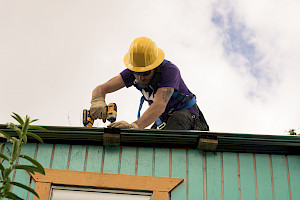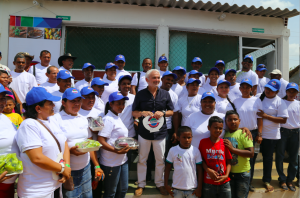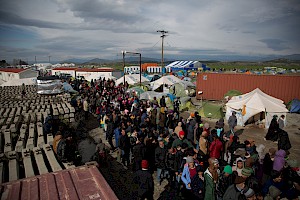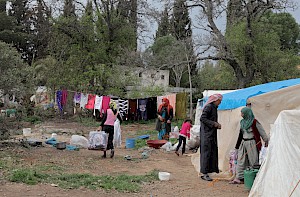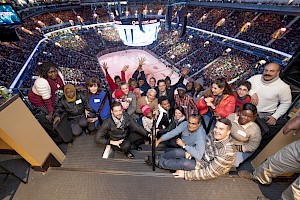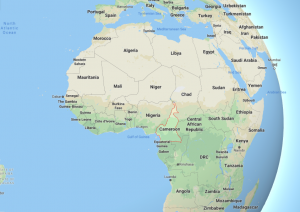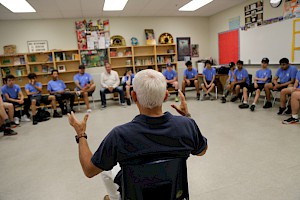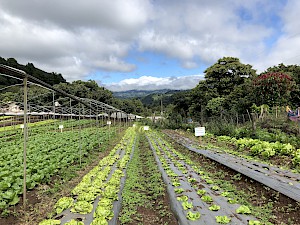Haiti
July 14, 2021In light of recent events in Haiti, I’m proud to share an article written by our Haiti-based Acceso team members Patrick Dorzin and Sergeline René who lead our agribusiness work in Haiti. We launched Acceso Haiti in 2014 with the goal of improving the livelihoods of Haitian smallholder farmers through market connections and improved, sustainable agriculture techniques. To date, Acceso Haiti has supported +7,400 farmers through training, inputs, seedling distribution, and purchase commitments at fair market prices.
Haiti is ours and it is a great country. We are not giving up on it and you should not either.
Our reflection on the situation in Haiti in light of the recent assassination of the President, why sustainable solutions are so important, and a few messages for the international community.
By Patrick Dorzin and Sergeline René
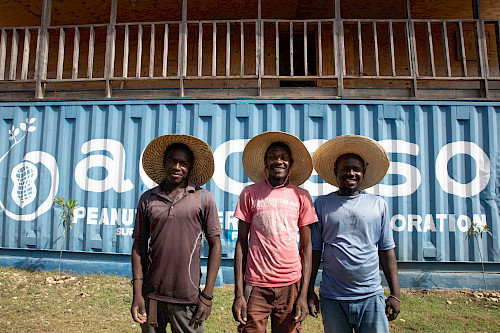 The title of this article is not something you will see in the news often. Articles about Haiti, including most of the ones released in the last few days, often have the words “poor”, “crisis” or “destroyed” in the headlines. Haiti is our country which we love. It is a great country. While we recognize that there is a lot of ongoing work to be done, we want to share our perspectives as Haitians with the world.
The title of this article is not something you will see in the news often. Articles about Haiti, including most of the ones released in the last few days, often have the words “poor”, “crisis” or “destroyed” in the headlines. Haiti is our country which we love. It is a great country. While we recognize that there is a lot of ongoing work to be done, we want to share our perspectives as Haitians with the world.
On July 6th, we woke up saddened and shocked by the news that President Moïse had been killed. We don’t believe that killing each other is the way to fix the internal issues that plague Haitian society. We believe in the respect for life and the respect for each other, despite potential differences in opinions or ideologies. We are saddened by a lack of focus on the real problems, the political in-fighting that continues, and the ongoing challenges of living in Haiti.
We hope that Haitians consider this an internal wake up call and call to action. It is a mutual frustration that we are tired of Haiti being categorized by just its poverty and its challenges, even before the assassination. We all yearn to see more positive stories about Haiti in the media. Yes, there are ongoing challenges in Haiti. We are personally concerned for the coming days. There is a lack of food, security, gas, electricity, and the list goes on. Honestly speaking, it is difficult to live here with these regular shortages. Because of this, as Haitians, we believe in fighting for real change. Not in fighting each other. We believe in addressing the real problems and sitting down at the table to listen to each other, not just when external governments are involved. When our differences are addressed and we put an end to the hate, we can move on to working on solutions together.
To the international community and those looking to support Haiti, we encourage you to look beyond the negative headlines, not perpetuate them, and support local solutions and development projects that address issues in a sustainable way. We need good projects that can stand on their own (after a phase of initial support) and contribute to Haiti’s long-term development, rather than temporary fixes. We need solutions that come from and empower the Haitian people. There is insufficient portrayal of positive stories and projects which exist.
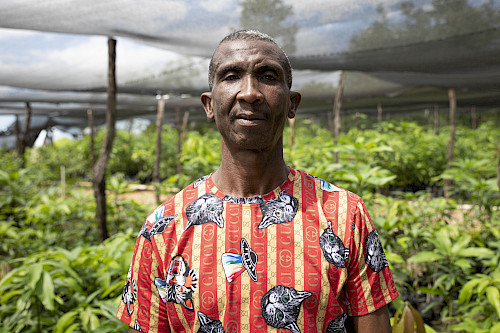 As professionals with years of experience in agriculture and the non-profit sector in Haiti, we’ve been disappointed by the lack of sustainable solutions in the past, but we are proud of our work with Acceso, a social enterprise which we’ve both worked with since 2014 and which we now lead. Through Acceso, we are working from the ground up with farmers, teaching good agricultural practices, giving them inputs, credit, and seedlings, and connecting them to markets.
As professionals with years of experience in agriculture and the non-profit sector in Haiti, we’ve been disappointed by the lack of sustainable solutions in the past, but we are proud of our work with Acceso, a social enterprise which we’ve both worked with since 2014 and which we now lead. Through Acceso, we are working from the ground up with farmers, teaching good agricultural practices, giving them inputs, credit, and seedlings, and connecting them to markets.
When we go to communities as Acceso, we bring hope. Farmers are ready to work with us. They believe in what we promise them. In fact, farmers have been asking us to do more – to begin investing in irrigation projects, for example, or to issue them additional loans. One of our proudest projects with Acceso has been creating Lavi Spicy Peanut Butter – the only peanut butter fully sourced and made in Haiti – and exporting it to the U.S. and Canada.
Haiti needs this type of work more than ever. Food security is a real problem here and as a business working in agriculture in the countryside, we are enabling farmers to participate in the critical effort of reducing food shortages. We empower farmers to be part of a sustainable solution: farming more food for their families and communities, and supplying local humanitarian feeding programs that provide relief in tough times such as during the Covid-19 pandemic. To us, Acceso’s model is new, real, valuable, and tied to results. Our local team in Haiti - who come from different regions in the country and includes recent university graduates to seasoned professionals - inspires us every day. We will keep working to empower farmers and we need others to join in.
We still have hope for Haiti and we will continue to fight for it. It is our country and it is the land of freedom. We have big dreams for it and we want to stay here. We want the news you read about Haiti to be good news. We now call on Haitians to come together and sit at the table to come up with unified solutions and we call on the international community to prioritize productive and sustainable interventions to give Haiti a hand to stand up with dignity.
About
Acceso Haiti was launched in 2014 by social business builder Acceso (founded by philanthropist Frank Giustra) with the goal of improving the livelihoods of Haitian smallholder farmers through market connections and improved, sustainable agriculture techniques. To date, Acceso Haiti has supported +7,400 farmers through training, inputs, seedling distribution, and purchase commitments at fair market prices. Acceso Haiti has aggregated, tested for aflatoxin, and delivered over 2,000 metric tons of peanuts to dozens of buyers, planted more than 2 million trees as part of reforestation efforts linked to market demand, and supported the feeding of nearly 1 million nutritious meals as part of local feeding programs. Acceso Haiti has served as a critical, value-creating intermediary between smallholder farmers, domestic and international buyers, and numerous humanitarian and other organizations in Haiti. Acceso Haiti has generated over $5 million in farmer revenues for its smallholder farmer network. Patrick is Director of Operations and Sergeline is Director of Administration and Sales.

